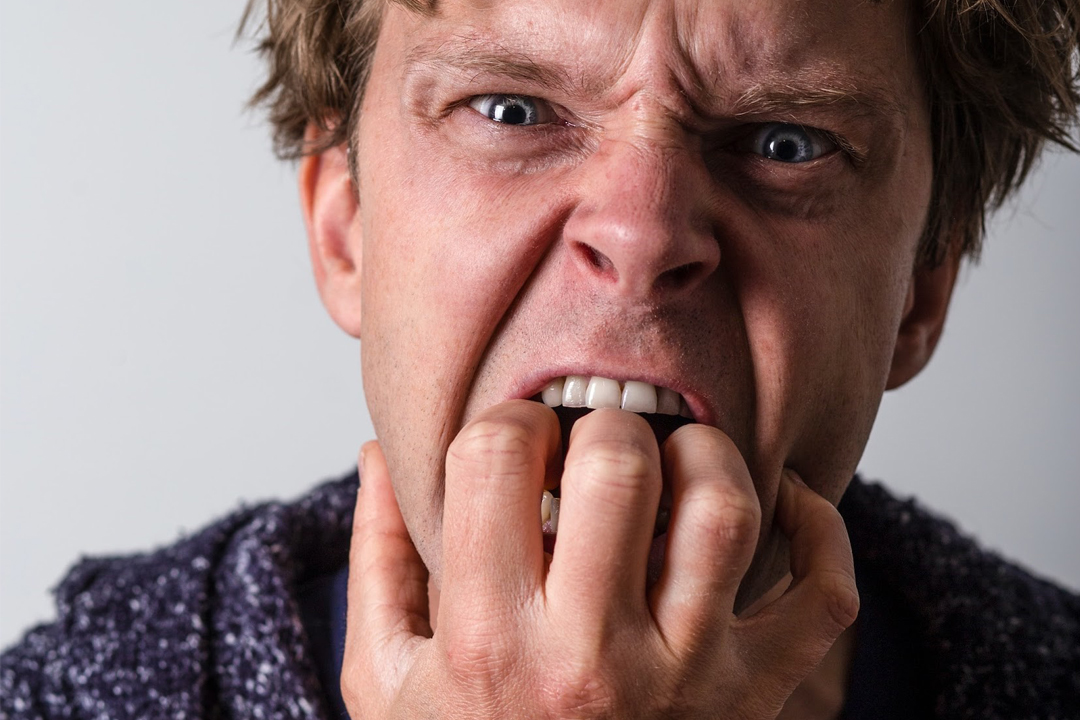
Understanding Nail Biting and Identifying the Triggers
Nail biting is a habitual behavior often associated with stress, anxiety, boredom, or even a subconscious response to nervousness. It can start in childhood and persist into adulthood if left unaddressed. This seemingly harmless habit can have far-reaching consequences, from damaged nails to potential health risks. The key to breaking free from nail biting is to understand its underlying triggers and address them effectively. Let’s delve into how to stop biting your nails and regain control over your habits. One of the first steps in conquering nail biting is recognizing the triggers that lead you to chew on your nails. For some, it’s stress and anxiety; for others, it’s simply a mindless habit during moments of boredom. Take a moment to reflect on when you tend to bite your nails most. Is it during high-stress situations, while watching TV, or when you’re deep in thought? By pinpointing the triggers, you can work towards finding healthier alternatives to manage your stress and boredom.
Replace Nail Biting with Healthy Habits
Replacing nail biting with healthy habits is a crucial step in breaking free from this common and often challenging behavior. By identifying the triggers that lead to nail biting, individuals can redirect their impulses toward activities that promote well-being. Whether it’s stress management techniques like meditation and deep breathing exercises or engaging in creative pursuits like painting, knitting, or playing a musical instrument, these alternatives keep hands busy and minds focused. Replacing nail biting with healthier habits not only aids in breaking the cycle but also contributes to improved overall mental and emotional well-being, leading to healthier nails and a more positive lifestyle.
Keep Your Nails Well-Groomed
Keeping your nails well-groomed is a crucial step in curbing nail biting. Well-groomed nails not only look more appealing but also serve as a deterrent, making you less likely to bite them. Regularly trimming your nails and maintaining them at a manageable length is essential. You can also use a file to shape them neatly, reducing any uneven edges that might tempt you to nibble. When your nails are clean and neatly manicured, the satisfaction of having attractive nails can motivate you to preserve their appearance, gradually breaking the habit of nail biting.
Use Bitter-Tasting Nail Polish
Wear Gloves or Band-Aids
Wearing gloves or using band-aids can be a practical and effective solution for curbing the habit of nail biting. These physical barriers serve as a constant reminder to resist the urge to nibble on your nails. Gloves, especially when worn during moments when nail biting tends to be at its worst, make it nearly impossible to access your nails. Band-aids can be applied directly to your fingertips, making them less appealing to bite. Over time, these deterrents can break the cycle of nail biting by forcing you to confront the habit and choose healthier alternatives, ultimately aiding you in achieving those well-groomed and beautiful nails you’ve been striving for.
Seek Support from Friends and Family
It’s often easier to break a habit when you have a support system in place. Seeking support from friends and family can be a vital component of your journey to overcome nail biting. Opening up to your loved ones about your goal to quit this habit can create a network of encouragement and accountability. They can offer you understanding and empathy, as well as help you stay on track by gently reminding you during challenging moments. Knowing that you have a support system in place can boost your motivation and provide a sense of camaraderie as you work towards healthier nails. In essence, involving your friends and family can make the path to overcoming nail-biting a shared effort and a journey towards better self-care.
Professional Help
In severe cases, when nail biting has become a compulsive behavior, seeking professional help may be necessary. Cognitive-behavioral therapy (CBT) can be an effective treatment, as it helps you understand the underlying causes of your nail biting and provides strategies to address them. A therapist can work with you to develop a tailored plan to break free from this habit.
Patience and Persistence
Patience and persistence are two virtues that often go hand in hand, and they are fundamental qualities for achieving long-term goals and overcoming challenges. Patience involves the ability to endure difficulties and setbacks without losing hope or becoming frustrated. It’s about understanding that progress may be gradual and that instant results are rare. On the other hand, persistence is the unwavering commitment to a goal, even in the face of obstacles and failures. It’s the determination to keep going, adapt, and learn from setbacks. Together, these qualities form a powerful combination, enabling individuals to navigate the ups and downs of life’s journey, reach their objectives, and ultimately savor the sweet taste of success that comes from never giving up.
Understanding the triggers, replacing the habit with healthier alternatives, and using tools like bitter-tasting nail polish or gloves are all effective ways to stop biting your nails. Remember, it’s a journey that requires patience and persistence, but the result—beautiful, healthy nails—is well worth the effort. So, take the first step today towards conquering nail biting and regaining control over your habits. Your nails will thank you for it!
Comments
comments